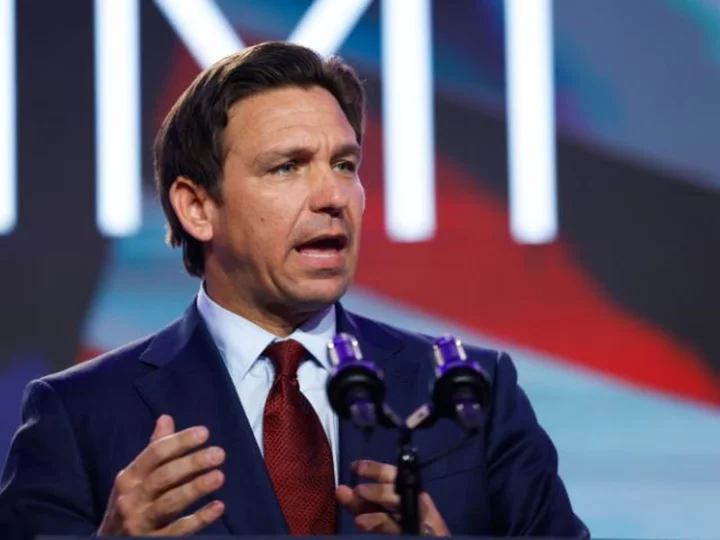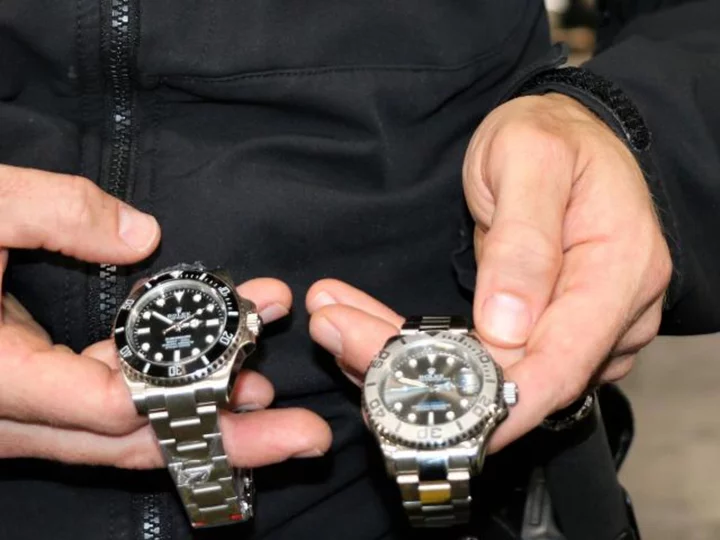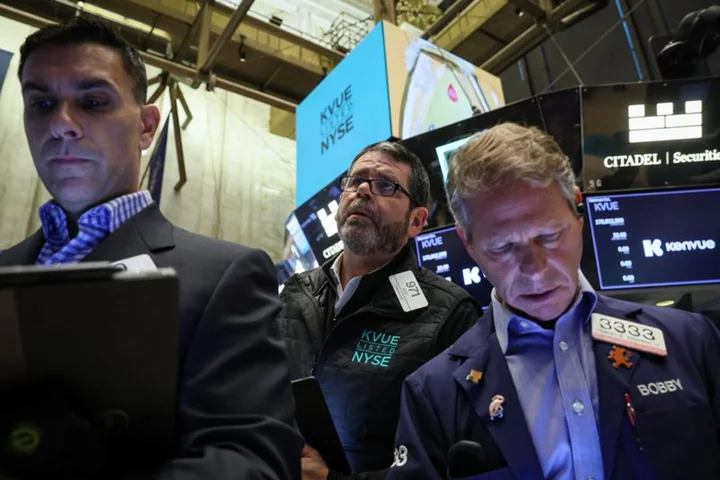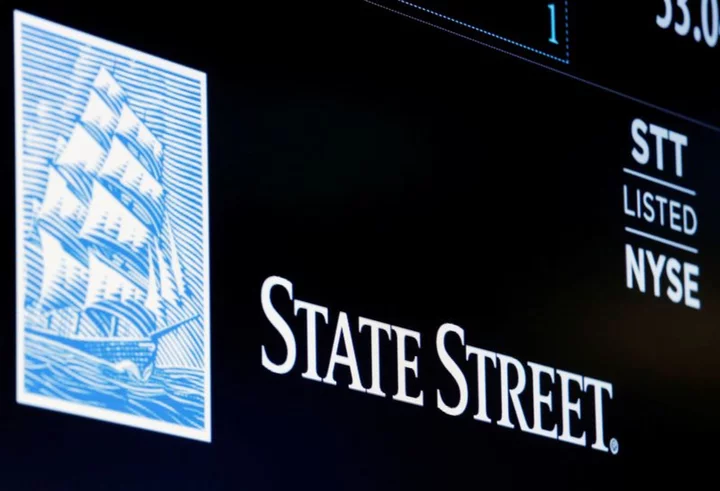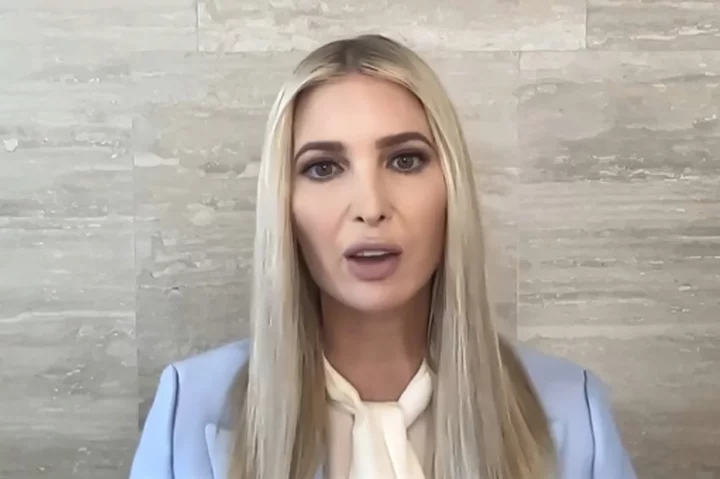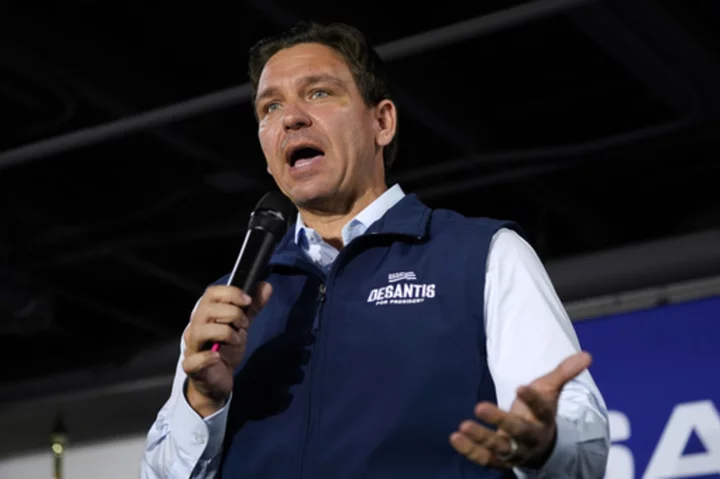Flanked by two oil rigs in West Texas, Florida Gov. Ron DeSantis shared his vision Wednesday for America's energy sector, with an emphasis on unraveling President Joe Biden's ongoing efforts to fight climate change.
As part of that vision, DeSantis would withdraw the United States from global climate change pacts and end all commitments for the country to cut net greenhouse emissions to zero, while greenlighting more pipelines and allow mining and extraction of oil, gas, coal, uranium and other minerals on federal lands, according to a statement his campaign released with the energy plan specifics.
"As your president, I will restore our freedom to fuel. I will ensure that the United States of America is the dominant energy producer in the entire world. I will ensure that this country does not have to rely on hostile nations for its energy needs ever again," the 2024 Republican hopeful said in Midland, Texas.
"Climate change ideology" would be replaced with "energy dominance in all national security and foreign policy guidance," his plan says. He would also "revitalize our nuclear energy industry."
Through these measures, DeSantis says he would be able to lower gas prices to $2 a gallon by 2025, a lofty goal that would be tested by international complexities that typically drive oil prices. Average gas prices have consistently stayed above $2 dating back to President George W. Bush's second term, though it has dipped below that mark for brief periods under Presidents Barack Obama and Donald Trump, according to the US Energy Information Administration.
Located in the heart of the Permian Basin, Midland, where DeSantis rolled out his latest policy proposal, is so intertwined with its oil- and natural gas-rich economy that its motto is "Feel the Energy!" Following the event, DeSantis will stay in Texas for fundraisers in Midland, Houston and Dallas, according to a senior campaign official.
Gas prices have fluctuated consistently under Biden, at times reaching record highs and driving troubling inflation. Biden has tapped into the country's strategic petroleum reserves to help alleviate prices at the pump. The reserve held 350.6 million barrels of oil, as of the week ending September 8, down nearly 300 million barrels since he took office. DeSantis says he would refill the reserves and limit future use to emergencies.
According to his plan, DeSantis would roll back subsidies for electric vehicles and "support Americans' right to drive the cars they want." The Biden administration earlier this year proposed new car pollution rules that could lead to electric vehicles accounting for two-thirds of new car sales by 2032. Much of Biden's push toward electric vehicles has come through the Inflation Reduction Act, which included a nearly $370 billion clean energy and climate package, the largest climate investment in US history.
DeSantis says he would withdraw the United States from the Paris climate agreement, a move first initiated under Trump but then reversed by Biden on the day he took the oath of office. DeSantis would also nix the Global Methane Pledge, a joint goal for reducing methane emissions reached last November by the Biden administration and the European Union.
And DeSantis would federalize a priority of his in Florida: banning government pension funds from considering factors like environmental, social and governance when making investment decisions.
While DeSantis on the campaign trail has often pushed for more fossil fuel production across the country, in Florida, he has fought to put guardrails on energy companies to protect his state's environment.
DeSantis on his second day as governor in 2019 signed an executive order that directed the state's Department of Environmental Protection to "oppose all off-shore oil and gas activities off every coast in Florida and hydraulic fracturing in Florida." He threatened he would "be raising Cain" if then-President Trump opened Florida's coastal waters to drilling, warning that an oil spill there would have a "cascading effect" on his state's economy. In 2020, his administration purchased 20,000 acres of Everglades wetlands to permanently protect them from oil drilling.
"I will continue to fight every day for the Everglades and Florida's environment," he said at the time.
DeSantis, though, seemed to distance himself from his environmental streak earlier this year, telling reporters that "people have kind of misconstrued" what he has done in Florida and attributing his anti-drilling position to Floridians who enshrined such protections in the state constitution.
"That's something that we honor. That is not saying that I think that should apply to Louisiana or Texas and all that, so that will continue," he said at a campaign event in New Hampshire. "We're a coastal state, we've had oil spills. We've put that in the constitution, our voters did, and that's something as governor that I followed and respected."
DeSantis has also faced questions from voters in Iowa -- the first nominating state on the GOP calendar -- about his energy record, particularly his past opposition to ethanol subsidies. As a congressman in 2017, DeSantis co-sponsored a bill to eliminate the federal renewable fuel standard, which mandates the blending of biofuels -- most often corn-based ethanol -- into US transportation fuel. Iowa is the country's leading producer of corn, more than half of which is used to make ethanol for fuel.
DeSantis recently wrote an op-ed in an Iowa newspaper that did not acknowledge his sponsorship of the 2017 bill but said that, as president, his administration would "also support giving drivers additional low-cost options at the pump, including higher ethanol blends such as E30 and higher octane options, and ensure that America's fuel economy is driven by moms in Marion, not bureaucrats in Washington."
Trump has seized on DeSantis' past efforts to end the renewable fuel standard as he seeks to drive a wedge between the Florida governor and Republican caucusgoers in Iowa. At the Iowa State Fair this summer, Trump's campaign handed out flyers highlighting DeSantis' past position on ethanol and claiming that the governor has been "fighting for years to kill every single job supported by this vital industry."
DeSantis campaign spokesman Bryan Griffin previously dismissed those attacks as "further evidence of (Trump's) eroding support in Iowa."
"Iowans increasingly know that Governor DeSantis is the presidential candidate who shares their values," Griffin said.
But DeSantis has largely dodged questions from Iowans about ethanol, promising he would have more to say when he introduced his energy agenda.
Ethanol, DeSantis said in August, "will be a part of our energy policy, because it's American made energy that's produced, that supports American jobs."
This story and headline have been updated with additional information.

